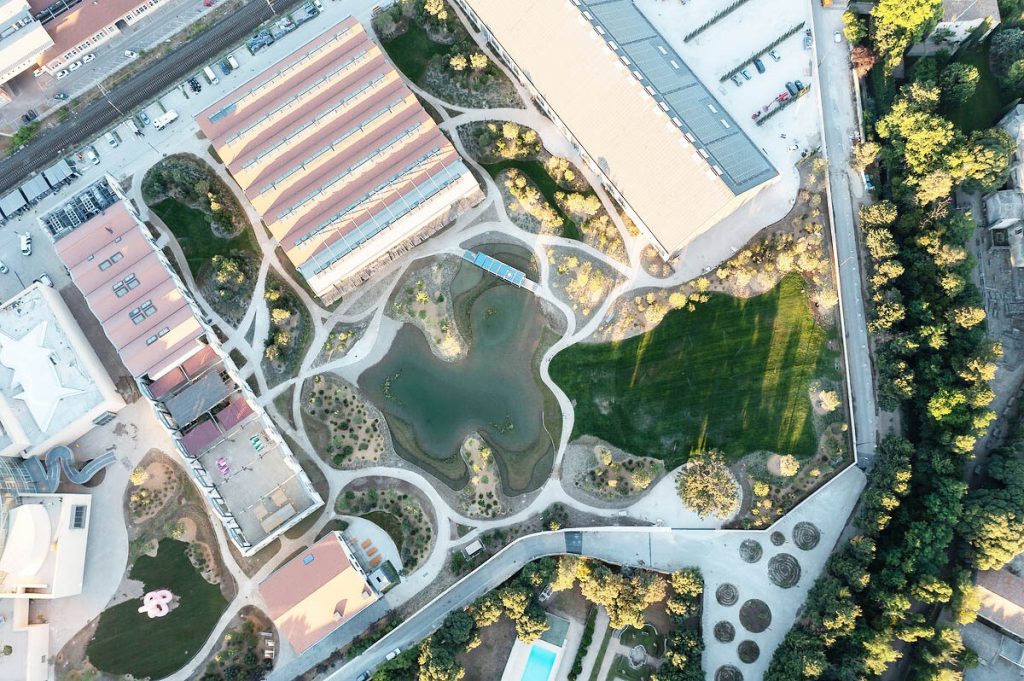The climate crisis poses the urgent challenge to make our urban environment more resilient in the face of unprecedented atmospheric changes such as rising temperatures, intensified rainfall, and longer droughts.
A city can be understood as a sequence of artificial microclimates. Buildings change wind patterns and sunlight exposure, while streetscapes modify soil permeability, runoff, and solar radiation. For each man-made microclimate, a comparable natural condition can be studied. Research on habitats and on the survival strategies of the organisms living within them permits the introduction of plants into artificial urban environments that have similar climatic conditions.
Using the logic of nature, cities can be transformed into complex urban ecologies, blurring the boundaries between the artificial and the natural. Science-based research allows the conception of solution-based projects, revealing our built environment as a network of microclimates in which plants combine the absorption of carbon dioxide with the production of evaporative cooling, simultaneously reducing the source of the problem and mitigating its effects.
The built environment thus becomes a hybrid living organism, lying at the interface between a changing meteorology and an underused geology. Biospheric Urbanism conceives the urban environment as the intersection connecting what lies above and what lies below, using the intelligence of plants.
Bas Smets (b. 1975) has a background in landscape architecture, civil engineering and architecture. He founded his firm in Brussels in 2007 and has since completed more than 50 projects in more than 12 countries with his team of 25 architects and landscape architects.
His projects include the Parc des Ateliers in Arles, the park of Thurn & Taxis in Brussels, the Mandrake Hotel in London, and the Himara Waterfront in Albania. In 2022 he won the international competition for public space around the Notre-Dame Cathedral in Paris, France.
Each of these projects is part of an interrelated research into the possible role and ambition of landscape projects. The aim is to invent ‘Augmented Landscapes’ by using the logics of nature. These augmented landscapes produce a new microclimate while providing new atmospheres. The collaboration with artists and scientists takes a central role in this research.
A first monographic exhibition was presented in 2013 by deSingel International Arts Center in Antwerp and Arc-en-Reve centre for architecture in Bordeaux. Bas Smets has received numerous honours and awards, among which the Award for Urbanism and Public Space from the French Royal Academy of Architecture and the Aga Khan Award for Architecture.
This Harvard Graduate School of Design lecture, the Daniel Urban Kiley lecture, is free and open to the public on Thursday March 23 at 6:30 pm in Gund Hall of the Piper Auditorium in Cambridge. For more information and accessibility information, visit https://www.gsd.harvard.edu/event/bas-smets-biospheric-urbanism/



